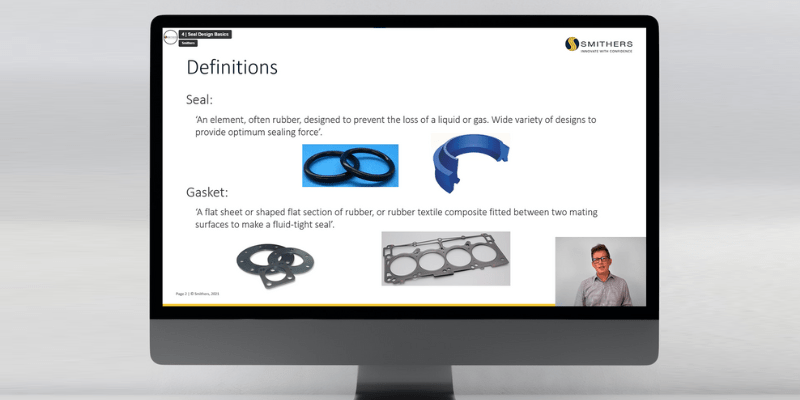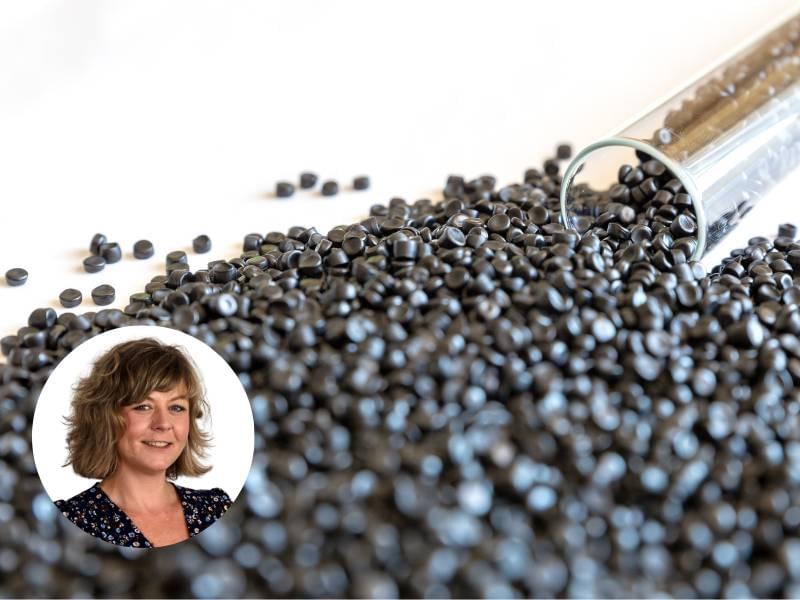Smithers runs
plastic and rubber training courses for delegates around the world. The courses are available for people of different levels of
polymer knowledge, and are offered in both online and in-person formats.
Many of those who attend Smithers’ rubber and plastics training courses do so because they find themselves in a position where they need to gain some understanding of an unfamiliar materials technology. At Smithers, we know that such an undertaking can be daunting and finding the right training can be challenging.
Like many of our course delegates, Smithers’ Training Product Manager Beth Jenkins comes from a background outside of polymer technology, so she is able to empathise with and understand those contacting her to talk about their training needs.
In Beth’s own words, this is how working with Smithers polymer training experts has helped her in her own role:
“When I joined Smithers as a Training Product Manager, I had a very limited knowledge of polymer materials. My background was predominately in sales and business development. Upon joining Smithers I wanted to quickly build up a knowledgebase to enable me to understand our clients’ needs and support them with relevant training courses. Thankfully, I have direct access to our extensive portfolio of online polymer training courses, as well as being able to work one-to-one with some of the course presenters!
I have found that the online format is popular with our clients, as they are able to learn at their own pace. The courses are split into modules that allow delegates to focus on individual areas. The presenters have pre-recorded videos of the courses which means there are no interruptions or distractions, and I can pause or rewind at any point if I want to come back to something. Alongside the videos, we also supply delegates with PDF versions of the course materials for them to keep. These can be printed out and give you a chance to make notes as you go along.

Something that stands out is the ability to have a Q&A session with an expert after watching the course. Speaking to clients, they find this incredibly useful and it gives them a chance to ask a question that relates directly to their own industry or scenario.
A common theme that I spotted after joining Smithers was that clients are looking for different levels of support – from a beginner level like mine, through to advanced levels of technical polymer science. We’ve established and will continue to grow a portfolio of courses that caters to these different industry requirements, so clients can pick a range of course that suits their exact needs.
For example we’ve introduced a Foundations in Rubber Materials course which is designed for those who are completely new to rubber, and gives insights into the material, its properties and a basic understanding of processing techniques. This is contrasted with a popular course we run called Understanding Polymer Durability in Critical Applications – a more advanced course that explores long-term material behaviour, especially under load/stress.
Our course presenters are unique – as well as delivering expert training courses and associated Q&A sessions, they are also active polymer consultants working in-house alongside Smithers’ suite of polymer testing, product testing and material chemistry experts. Our team have decades of industry experience working with plastic and rubber materials and have been active in product development, material selection, life cycle prediction and failure analysis for many different clients, applications and products around the globe. This means that courses are not just about the science behind polymers, but also their real-world applications.”
As well as online and in-person courses, Smithers is able to provide bespoke in-company polymer training which can be tailored to your organisation’s exact needs and delivered on your own premises.
Smithers is an IOM3 Quailty Assured training provider and our courses are approved towards professional development.
For more information, please contact Beth today for a friendly discussion about your polymer training needs, and resolve any gaps in your polymer knowledge you may have.




